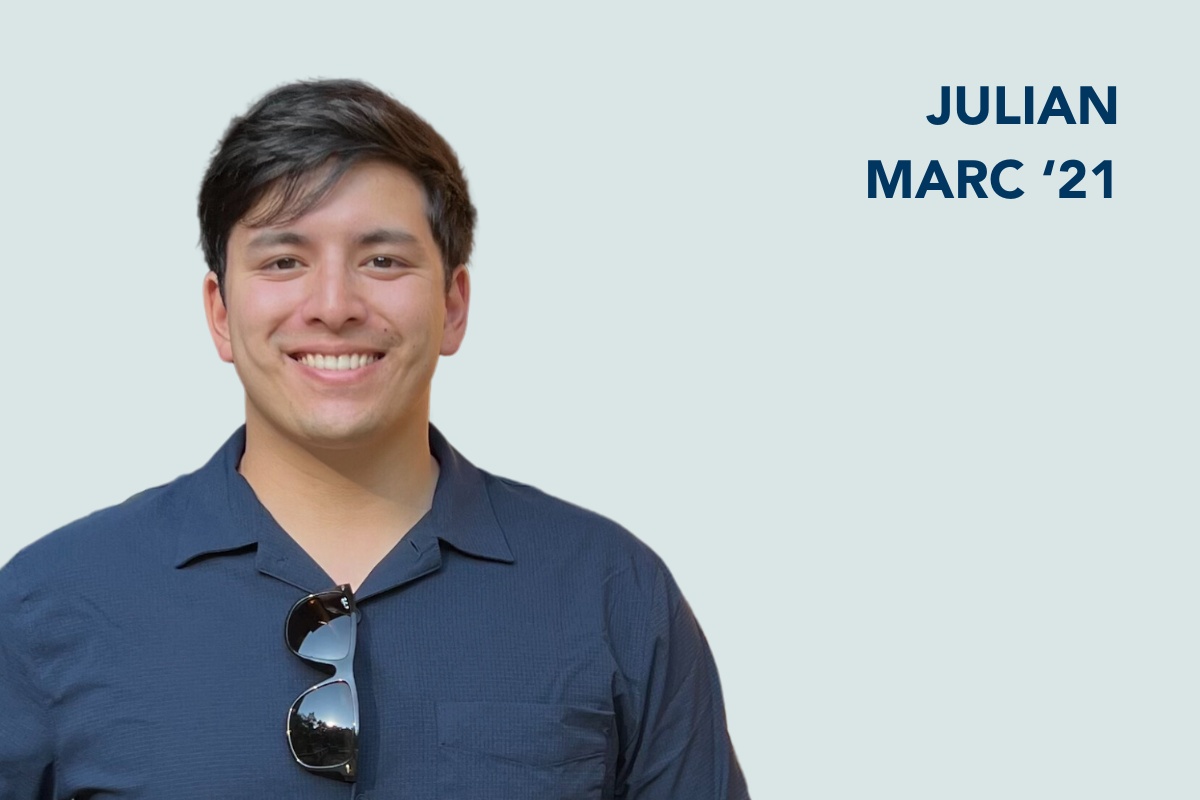
After graduating high school, Julian Marc '21 was unsure of his career path ahead. He immersed himself in a range of classes at his local community college, eventually developing an interest in neuroscience. By the time he reached UCSB, Marc was hooked. Despite original intentions to attend med school, Marc found himself spending his time researching brain computer interfaces. From there, Axon Interfaces was born.
Q: What career aspirations did you have going into college?
In high school, I had several counselors and teachers tell me I would never make it to college because of my learning disabilities and poor grades. By the time I graduated high school and entered community college, I had no idea what I wanted to do and part of me thought they were right. I had all these interests at community college– Engineering, Astronomy, English– but I eventually ended up taking this biopsychology class that involved a lot of neuroscience. Something just clicked for me. I wanted to go to med school and get my PhD, but that slowly morphed into entrepreneurship as I went through my schooling.
Q: How did your time at UCSB shape your professional interests?
When I transferred into UCSB, I really honed my passion for neuroscience in upper division classes. There were a lot of professors who helped develop my interests further and even motivated me to pursue entrepreneurship in my field.
Q: How did your vision for Axon Interfaces come to life? What were your first steps in building this company?
I took a class with professor Elliot Ihm and we talked a lot about neurolink and invasive brain computer interfaces. He was the one who told me about non-invasive brain computer interfaces, like the neuroimaging method EEG. He led me on this path through conversation, as I just started reading about all these interfaces. At the time, I was applying to research positions in order to bolster my application for med school. I would go to the library every day for eight hours to apply to a few positions and then read about EEG and other interfaces. I had this routine for a few months before I realized the eight hours was now solely dedicated to reading. Reading about this obscure topic gave me the idea to take the opportunity and utilize the technology.
Q: How would you explain what Axon Interfaces does to a friend who knows nothing about the industry?
We are a software company that diagnoses people’s brainwaves and measures drug effectiveness using Artificial Intelligence technology. Essentially, we take a look at the electrical signals on your scalp, which allows us to diagnose neurodegenerative diseases within one minute. Additionally, we have the capability of capturing someone’s subjective mental state.
Q: What motivates you on a daily basis, and how do you keep that motivation high as a professional leader?
I’ve always had a passion for helping people. That’s why I wanted to become a doctor or neuropsychologist. So when I started to become obsessed with the topic of non-invasive brain computer interfaces, I felt a combination of passion for science and helping people. Every day, I get to talk to interesting people and do crazy things I never thought I could.
Q: As a CEO, how do you maintain a fulfilling work-life balance?
My friends and girlfriend help me slow down and take Saturdays off, at least. But to be completely frank, I don’t maintain the best balance. I’m trying to get better at that.
Q: What was one unexpected lesson you learned while building your company that you wish you had known earlier in your career?
One unexpected lesson I learned is the importance of treating everyone as a human being, regardless of their title or the company they represent. I found that being more relaxed and authentic in my communication, even during cold calls, led to better results than when I was rigid or overly formal. Early on, I put a lot of weight on titles, assuming they dictated how I should interact. But as I built my company, I realized that the person in front of me, no matter their position, has their own challenges and aspirations. When I started focusing on genuine, human-to-human connections, it became much easier to build meaningful relationships and communicate effectively. I wish I had known earlier that authenticity beats professional posturing every time.
Q: During your time at UCSB, what was your favorite study spot?
Definitely the top floor. There’s this random little corner towards the northwest side, where I had this desk I would always go to. Even if it was taken, I would just wait around until it was free. When I had a lot of reading to do, I would go to Campus Point.